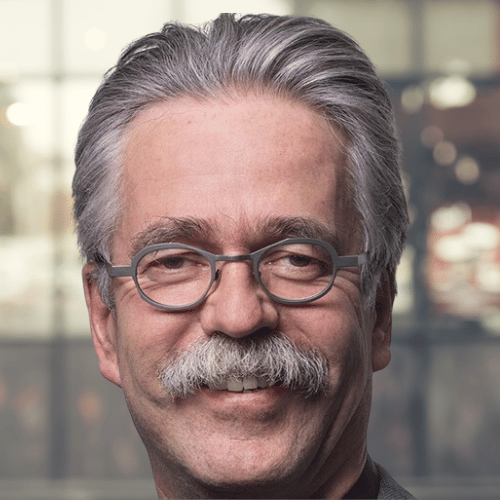
Jelte Bos

Professorship chair
Vestibular Motion and Orientation Perception (Vrije Universiteit Amsterdam, Faculty of Behavioural and Movement Sciences, Department of Human Movement Sciences).
Research area
The organs of balance are at the basis of our vestibular system, playing a major role in motion and orientation perception, and the control of our body, head and eye movements. To optimize this perception and control, our central nervous system integrates the information from the organs of balance with that of the eyes and other senses, as well as with cognitive information.
In health and natural conditions this works amazingly well. In (e.g., Ménière’s) disease and unnatural conditions (such as being moved by a car, ship or aircraft, or in virtual environments), this perception and control can be inadequate and highly disabling due to, e.g., falls, vertigo or dizziness, and all kinds of motion sickness (e.g., car-, sea-, air-, cyber-, simulator, and space sickness).
These issues are of particular interest to military personnel operating in extreme conditions. With the growth of technology and our increasing age, these side effects can be predicted to play an increasing role in the coming years. This not only holds for physical conditions but for virtual environments as well.
Together with universities, TNO can and should be helpful in combining the understanding of the phenomena at issue with solutions that better go down to the core of the matter.
Top publications
-
Bos JE, Bles W (1998). Modelling motion sickness and subjective vertical mismatch detailed for vertical motions. Brain Research Bulletin 47:537-542.
-
Bos JE, Bles W (2002). Theoretical considerations on canal-otolith interaction and an observer model. Biological Cybernetics 86:191-207.
-
Bos JE, Bles W, Groen EL (2008). A theory on visually induced motion sickness. Displays 29:47-57.
-
Bos JE, MacKinnon SN, Patterson A (2005). Motion sickness symptoms in a ship motion simulator: effects of inside, outside, and no view. Aviation Space and Environmental Medicine 76:1111-1118.
-
Diels C, Bos JE (2016). Self-driving carsickness. Applied Ergonomics 53:374-382.
-
Longtin A, Milton JG, Bos JE, Mackey MC (1990). Noise and critical behaviour of the pupil light reflex at oscillation onset. Physical Review A 41:6992-7005.
Soesterberg
Kampweg 55
NL-3769 DE Soesterberg
Postal address
P.O. Box 23
NL-3769 ZG Soesterberg
-
Telefoon:+31 88 866 15 00
-
Email:[email protected]